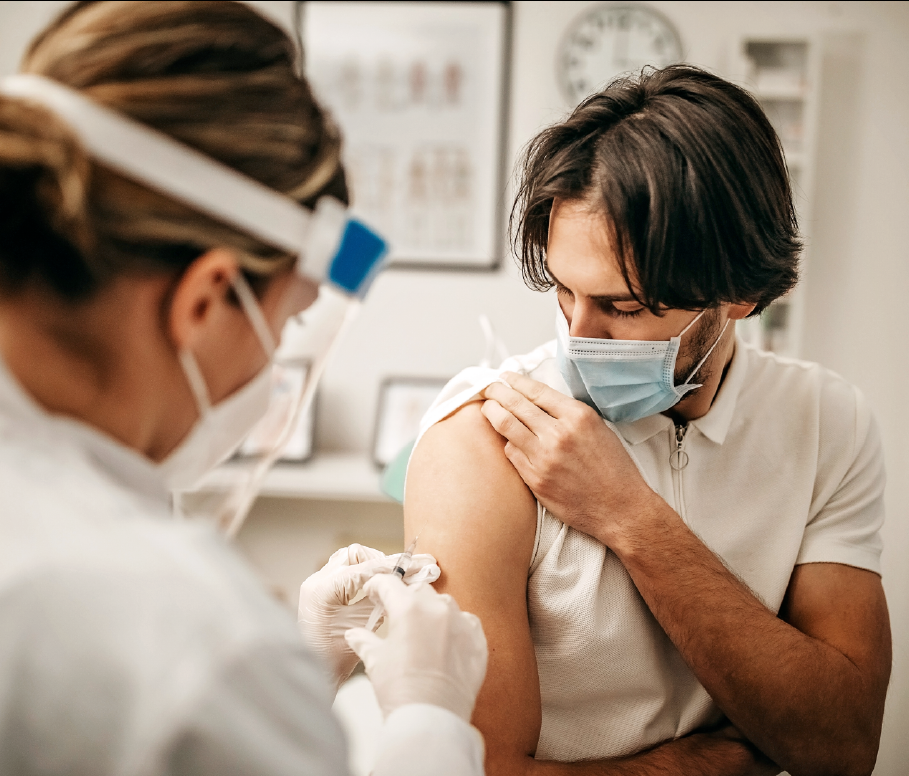During the World Trade Organization’s 2021 Public Forum, the U.S. Chamber of Commerce’s Global Innovation Policy Center hosted and IP Progress partner Amit Kapoor from the Institute for Competitiveness moderated an interesting session – Intellectual property (IP): the unsung hero of the pandemic?. While Kapoor noted the “success we are seeing with the pandemic is a collaborative effort and a show of human resilience,” experts spoke to what more can be done and how best to address current challenges, which could end this pandemic and prepare for what’s next.
Here are three key takeaways from the panel discussion:
IP Creates a Stable Environment for Innovation
Elizabeth Crossick, Head of Government Affairs – EU at RELX Group, noted that the tremendous feat of getting vaccines to market was due to “cooperation, collaboration and licensing, not the decimation of IP rights or indeed a waiver.” Specifically, “that protective cover [of IP] allows us to generate that evidence-based quality and insights…but also allows us to freely disseminate that during the pandemic.” She underscored that “you need to have reliability in order to invest, which allows you to innovate.”
Komal Kalha, Associate Director of IP and Trade Policy at the International Federation of Pharmaceutical Manufacturers and Associations, agreed, noting that “IP has actually been an enabler in all of [the scale up and manufacturing of COVID-19 solutions].” Innovators were “able to rely on years of research and development” supported and protected by IP to speed solutions to people.
Hans Sauer, Deputy General Counsel and Vice President for Intellectual Property at
Biotechnology Innovation Organization, noted that the development of the COVID-19 vaccines less than a year into the pandemic was “not an accident or a lucky break” and “nothing short of a demonstration of what we can achieve.” He also acknowledged the many innovations that never make it to market as further proof that the IP ecosystem works by incentivizing discovery and protecting innovators: “We’ve tracked close to 1,000 research and development programs that were started in response to the pandemic…980 programs, over 200 of which have already been discontinued and reported as failed.”
Real Barriers are Standing in the Way of Global Vaccine Equity
On the topic of global COVID-19 vaccine equity, Sauer firstly acknowledged “there’s a community of purpose and interest that is shared by public and private actors including industry…about the unequal pace in which vaccines became and are becoming available around the world…it’s a great concern that must be solved as soon as possible.”
To help address barriers countries have faced, as well as solve for the vaccine equity challenges now and into the future, Kalha noted: “If it’s for this pandemic, you need to remove trade barriers, you need to dose share and you need to make sure countries have programs that actually get shots into arms.” Kalha further noted that “if you’re talking about medium- to long-term where technology transfer comes in…you need to build in systems” and talent that create the needed capacity. And for the long term, “you need to create a sustainable innovation ecosystem.”
We Need Continued Collaboration, Not IP Waivers, to Drive Solutions
As Sauer noted, “the debate over the role of intellectual property and concerns…started in March of last year…[when critics thought] that it might hold up the creation of vaccines and countermeasures, but that manifestly didn’t happen.”
He added, “if the objective [of the IP waiver] is to solve the current crisis and to increase production, then we need to talk about how we’re going to maximize production…it’s probably not going to be helpful to construct entirely new capacities, construct new factories, and build up new production chains that require their own inputs and supply chains….That won’t make a difference – by all projections – to this pandemic.”
And for longer-term issues such as “production capacity in Africa” for future pandemics, waiving IP is still not the solution as “collaborative research and development, participation in IP systems [and] licensing technology is going to be a much more productive way of going forward” especially given successes with that approach to date.
As Crossick emphasized, there is a “need to encourage ongoing collaboration…we need to keep going” and continue to innovate to solve global challenges. The current environment, underpinned by IP, has shown “competitive industries doing what they do best and collaborating with others.” By building on the progress to date and supporting a stable environment that supports innovators, we’ll be best positioned to address whatever may arise in the future.
“The IP waiver is not a silver bullet.” - Komal Kalha, International Federation of Pharmaceutical Manufacturers and Associations


